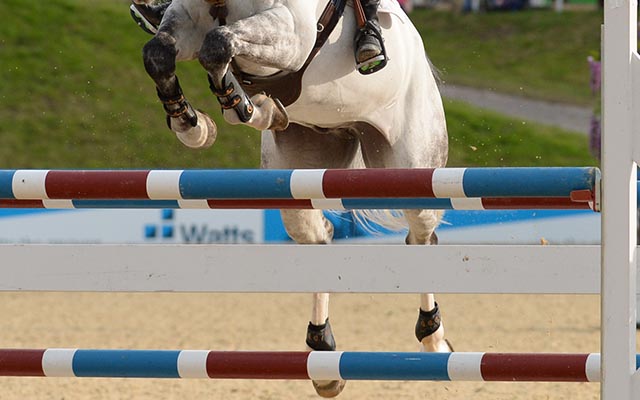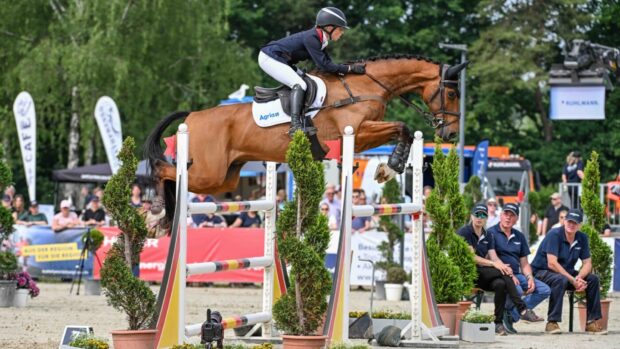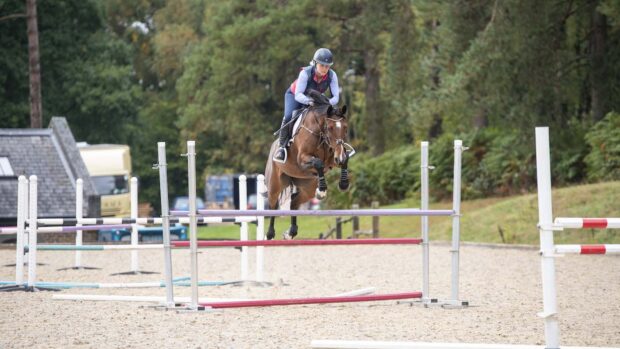Sweden’s eventing manager and coach Frederik Bergendorff gave an interesting talk at the International Eventing Forum at Hartpury (5 February) entitled, ‘Preparing for the top’. Here are some words of wisdom he provided with regards to having success while showjumping:
1. If you only have 20-25 minutes to ride, do your best warm up and then put your horse away — don’t try and rush through a warm-up as you won’t get the best out of your horse
2. The first part of the warm up should be about finding and establishing an even rhythm, suppleness and connection
3. I like to use trotting poles in a warm up — I want the horse to use its full range of movement and this helps achieve that. You should also use leg yield to help your horse become more supple
4. It’s hard for a horse to have its nose close to its chest and move its shoulder at the same time — take the neck and nose out. If a horse can use its shoulder, engagement will be easier to achieve
5. Jumping at home you need to think about what canter you would have in competition — it is easy to ride under-paced at home and a lot of us are guilty of it
6. Feel what’s going on underneath you and ask yourself: what do you need to change to make it better?
7. Think about the quality of the canter — if you know what a good canter feels like at home, you should be able to successfully reproduce it in the ring
8. In competition, most of your showjumping round will be in medium canter, not working canter, so make sure you replicate this at home
9. Focus on the basics and just do them a bit better
10. Create the canter you want to jump a fence in plenty of time before the jump so that you get to the fence in the best way possible
11. The most important thing when jumping is that horse and rider are in perfect balance — it’s hard for a horse to jump when it’s on the forehand
12. Unless there’s a reason for it, riders should hold their reins up on the neck in front of them. This helps with the rider’s position over a fence as it helps keep them more upright and helps prevent them from crowding a horse’s front end
13. I like riders to canter in a light seat to start with — it helps them feel what is going on underneath them
14. Ride medium canter on the long side then balance to working canter on a small circle — this helps get the hind end underneath the horse while staying forward
15. If the horse isn’t straight and feels like a banana, ride counter canter to stretch the inside of the horse
16. If you have space, ride on the inside track — it’s too easy to let horses follow the fence of the arena
17. It’s important that you go into a session knowing what you want to do and that you can achieve it
18. It’s better to focus on what you can do rather than what you can’t do
19. Jumping courses is about being able to maintain a quality canter all the time
Continued below…

13 performance psychology pointers to help improve your results
Read these top tips from performance psychologist, Charlie Unwin, to help you get a head start this season
20. Keep your reins short and work the horse up to the contact to stop them getting on the forehand
21. Modern showjumping courses are about rollbacks and turns — you need to ride between each fence like it’s a related distance to get the best possible jump from your horse
22. I like to use more oxers than uprights in training as the horse has to work through its body more over a spread fence
For all the latest news analysis, competition reports, interviews, features and much more, don’t miss Horse & Hound magazine, on sale every Thursday




